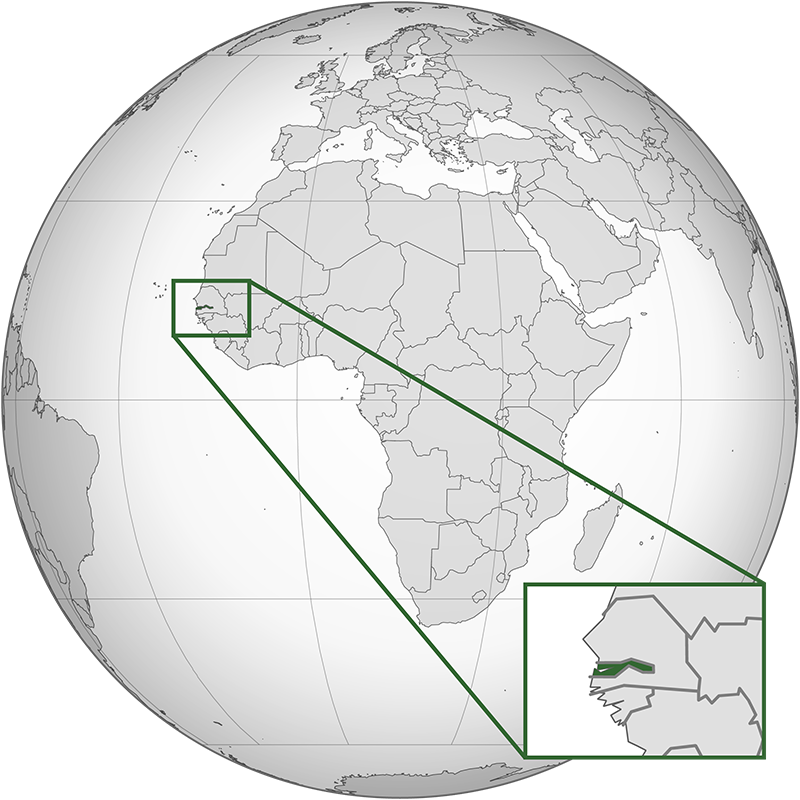
- Population:
- 2,760,000
- Religion:
- Islam
The Gambia was historically part of various West African kingdoms before becoming a British colony in the 19th century. It gained independence in 1965 and has experienced periods of dictatorship and democratic transitions. Despite its small size, it remains an important tourist destination, known for its rich culture and biodiversity along the Gambia River.
The Gambia, officially the Republic of The Gambia, is a country in West Africa. It is the smallest country within mainland Africa, bordered by Senegal to the north, east, and south, and with a coastline along the Atlantic Ocean to the west. The country follows the path of the Gambia River, which flows through its center and empties into the Atlantic Ocean. Covering an area of approximately 11,295 square kilometers, The Gambia has a population of about 2.4 million people as of 2023. The capital is Banjul, with the largest cities being Serekunda and Brikama. The official language is English, with various indigenous languages also spoken. The Gambia operates as a presidential republic. The economy is predominantly agricultural, with peanuts being the main export crop, alongside tourism and services. The Gambia is a member of the United Nations, the African Union, and the Economic Community of West African States.





